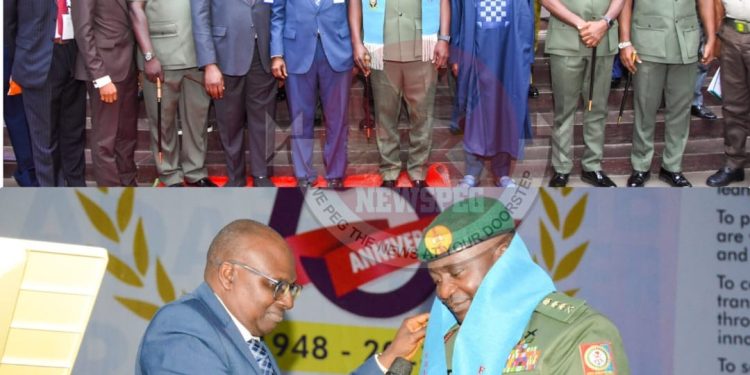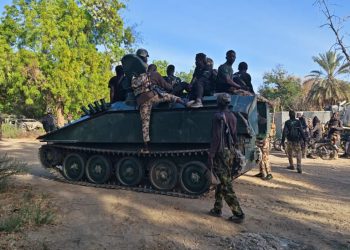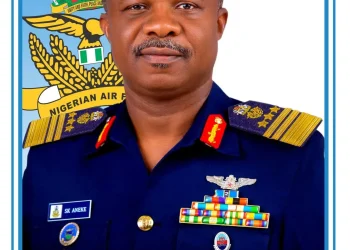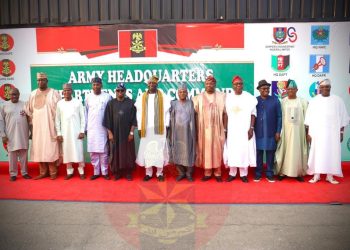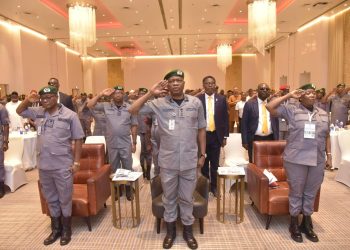By Nkechi Eze
In a powerful call to action, the Chief of Defence Staff (CDS), General Christopher Gwabin Musa, OFR, has urged Nigerians to unite behind the nation’s security efforts and work collectively to strengthen national institutions in the face of rising global fragility and complex security threats. He made this appeal on Thursday, July 24, 2025, while delivering a landmark public lecture at the University of Ibadan titled “Global Fragility and Security Management in Nigeria.”
The lecture, which attracted an esteemed audience of academics, military personnel, policymakers, students, and civil society leaders, provided a sweeping analysis of the evolving global security landscape and its far-reaching implications for Nigeria’s national stability.
According to a statement issued by the Director of Defence Information, Brigadier General Tukur Gusau, General Musa began his address by drawing attention to the growing interconnectivity of global events and how instability in one region can rapidly spill across borders to affect others. “The world today is more interconnected than ever, and fragility in one region has immediate consequences in others,” he noted, citing the collapse of governance in Libya and the persistent instability across the Sahel as key enablers of arms proliferation and extremist ideologies now threatening Nigeria’s internal peace.
He spoke extensively on the wide-ranging effects of global shocks including climate change, cyber threats, and economic disruptions on Nigeria’s security environment. Of particular concern, he said, is the environmental degradation of the Lake Chad Basin, which has led to mass displacement, competition for resources, and deepening communal tensions along Nigeria’s borders. He also linked the economic fallout from conflicts like the war in Ukraine to worsening inflation, food insecurity, and social unrest back home.
“From cyber disinformation campaigns to illicit arms flows and ecological displacement, the threats Nigeria faces today are multi-dimensional and increasingly shaped by global events,” the CDS explained.
To meet these evolving challenges, General Musa outlined the core elements of Nigeria’s adaptive security architecture, guided by the National Defence Policy and supported by a Whole-of-Government and Whole-of-Society Approach. These strategies, he said, are designed to blend the efforts of military and civil institutions, grassroots communities, and international partners into a unified national response.
He highlighted several recent achievements under this framework, including the deployment of advanced surveillance technology such as drones and artificial intelligence, expansion of cyber command units to counter digital threats, stronger regional cooperation within ECOWAS and the Multinational Joint Task Force, and growing reliance on traditional institutions to drive community-based security initiatives.
Despite this progress, General Musa cautioned that Nigeria still faces enduring vulnerabilities. These include porous borders that facilitate the smuggling of illicit arms, underdeveloped governance structures in rural areas that are easily exploited by criminals, and growing pressure from foreign actors including conditional arms deals and disinformation campaigns that aim to destabilize public confidence in state institutions.
In proposing a path forward, the Defence Chief offered four strategic pillars to ensure Nigeria’s long-term resilience: strengthening institutions such as the judiciary, security forces, and democratic structures; promoting economic empowerment through youth development, agriculture, and entrepreneurship; building community resilience through trust-building, intelligence sharing, and local early warning systems; and enhancing global partnerships with improved intelligence collaboration and adherence to international standards.
He charged Nigerian universities, especially the University of Ibadan, to take the lead in national orientation, security research, and capacity development. “The University of Ibadan, as a centre of intellectual leadership, must continue to contribute to the national security discourse through research, dialogue, and mentorship of future leaders,” he urged.
Concluding his lecture, General Musa reaffirmed the Armed Forces’ unwavering dedication to the defence of the nation and called on citizens to embrace their role in shaping a secure and just society. “Security is not merely the absence of conflict, but the presence of justice, opportunity, and hope,” he declared. He further assured the audience that he was acting under the directive of President Bola Ahmed Tinubu to work closely with all relevant agencies to address the country’s security challenges.
The event was chaired by former Chief of Army Staff, Lieutenant General Tukur Yusuf Buratai (Rtd), who was represented by Lieutenant General Lamidi Adeosun (Rtd), and attended by top dignitaries including the Vice Chancellor of the University of Ibadan, Professor K.O. Adebowale; the General Officer Commanding 2 Division, Major General O.G. Onubogu; and several senior military officers, both serving and retired.
A notable highlight of the event was the conferment of a Fellowship of the TETFund Centre of Excellence in Security Management on General Musa, in recognition of his outstanding leadership and contributions to national security.


